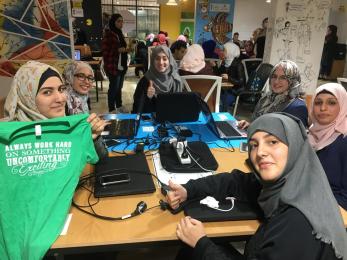Does Youth Employment Build Stability?

Evidence from an Impact Evaluation of Vocational Training in Helmand, Afghanistan
Promoting stability is one of the primary objectives of nearly all major development actors operating in Afghanistan. Many stabilization policies and programs are based on the assumption that the root cause of political violence, terrorism, and insurgencies lie in poverty and resource deprivation. In response, millions of dollars have been spent on employment and job training interventions, especially for youth.
Mercy Corps recently undertook a rigorous impact evaluation to test whether youth unemployment is linked to support for political violence in Afghanistan. The research was conducted as part of Mercy Corps’ Introducing New Vocational Education and Skills Training (INVEST) program in the Helmand Province. Given the success of INVEST in creating employment, the program provided a unique opportunity examine this common theory.
The research leveraged econometric modeling to generate credible evidence on if and how job creation interventions like INVEST can contribute to stability. Key findings from the study include:
- INVEST had positive effects on participants’ employment and economic optimism. The key success factors, which should be replicated in future programs, include addressing local market needs and employing local master trainers.
- Joblessness is not the primary driver of violence: Few of the economic outcomes to which the INVEST program contributed were strong predictors of young Afghans’ support for political violence or armed opposition groups.
- Social status is a key leverage point for promoting stability: Improving young Afghan’s sense of respect in their community appears to hold the potential to lower their risk of supporting violent groups and causes.
The insights generated by the research have important implications for improving the effectiveness of investments in youth employment and stability interventions in Afghanistan and similar fragile states. Specifically, the report directs policy makers to:
- Decouple employment and stabilization interventions: Our evidence cautions against assuming youth employment achievements will increase stability. Before investing significantly in stabilization programs in complex crises, more in-depth analysis is required to understand and respond to the drivers of conflict.
- Replicate models for youth employment that have proven successful in complex, kinetic environments: Supporting job creation for youth is important to economic development and growth in and of itself. The INVEST model has proven that it is possible to foster job creation, even in highly kinetic environments. Future TVET programs should endeavor to adapt and the successful strategies into their designs.


